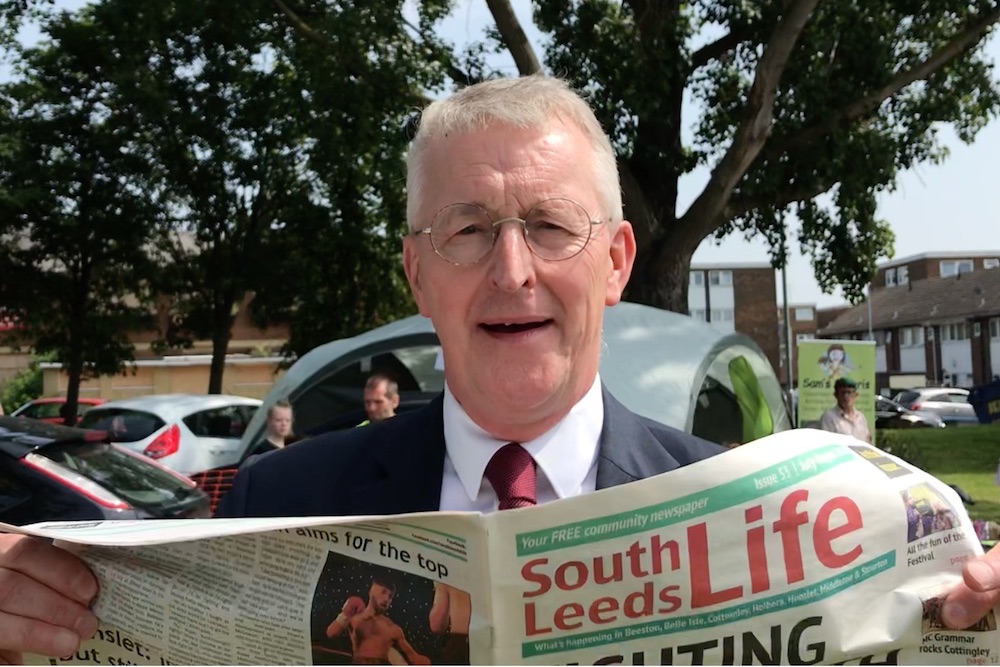
Since March, our lives have been dominated by Covid.
As I write, Leeds has just been put under new restrictions which mean that families won’t be able to see anyone else in their homes. It is the rising rate of infections in our city that has made this inevitable and we all have to do our bit, but the longer this goes on, the more we will debate whether we have got our response right. There isn’t an obvious answer, so I thought I’d devote this month’s column to my reflections on the dilemma we face.
In most people, Covid causes no symptoms or a relatively mild illness. But for a small proportion it can lead to hospitalisation and in some cases death. The older we are, and the more medical conditions we have – like diabetes and heart disease – the greater the risk we face. Some of those who get it are left with long-term problems. And because we are social beings, someone who catches the virus and may not even realise it can then pass it on to someone else who may be put at serious risk. That is the argument for trying to limit the spread of infection.
The original lockdown reduced the number of cases significantly but the economic cost of doing so was enormous, and governments around the world are grappling with how to balance the threat to health and to the economy. Some sectors are in a state of despair – eg aviation, theatres, conferences, sport, the arts and weddings. A very large number of people who rely on those sectors for work can see no means of earning a living in the near future, while the support, if they have been getting it, is now being reduced. Unemployment is rising sharply and lots of families are finding it hard to pay the rent or the mortgage. The Government must look after them.
Some people have written to me to argue that we should be following the example of other countries. Back in March, the questions were “why haven’t we already locked down like France and Spain?” Six months on, people say we should follow Sweden which has had fewer restrictions, but whose death rate per head of population is not far behind ours. What about the apparent contradictions? It’s OK for people to sit in a relatively crowded pub and watch a football match but they can’t go into a socially distanced stadium to do the same. And the ever-changing rules cause confusion.
There’s a multiplicity of scientific voices which have different theories about what to do. This is not surprising really given that there’s a lot we still don’t know, but for those taking decisions it’s really quite difficult.
Having said that, there are some basic things which our Government has got wrong. The original lockdown was too late, care homes were not protected, there wasn’t enough PPE to start with and the testing system has left worried families waiting for tests. This isn’t good enough because swift results really do help contain the spread of the virus.
And what about our freedoms? Some say that the Government has no right to tell us what do, and they protest against masks and even vaccines. I don’t understand the fuss about masks as they seem to me to be a prudent step to restrict the spread of the virus. At heart, is the moral question. Should the freedom of one person to do what they want extend to giving the virus to someone else to whom it may cause serious illness or even worse? Parliament’s job is to strike the right balance, but there is no denying the great toll of the restrictions in terms of loneliness and mental ill health.
When will this all end? The answer is when we get a vaccine that can reduce our chances of getting the virus and more medical treatments that reduce symptoms and death rates. Here we have seen some progress because doctors now understand more about the illness they’re dealing with.
Finally, I want to express my heartfelt thanks to everyone in our city who has been working so hard throughout the past few months; the workers who are delivering vital services, NHS and care home staff, the public health teams who are doing local track and trace, the employers, businesses and schools trying to keep their workers, customers and children safe and the extraordinary voluntary effort there has been to look after those in need.
Amid all the worry and uncertainty about the future, it is this collective solidarity and spirit – of which South Leeds is such a good example – which offers us the greatest hope.
Stay safe.



Regarding not meeting families in each others homes or gardens , it doesn’t always work. A friend of mine knows of a couple whose grown up children – who live in different part of Leeds- visit them almost every day and bring young grandchildren – this couple both go out to work, they are not houseboundand need help .the same thing is probably going on all over with people who have no regard for others welfare .